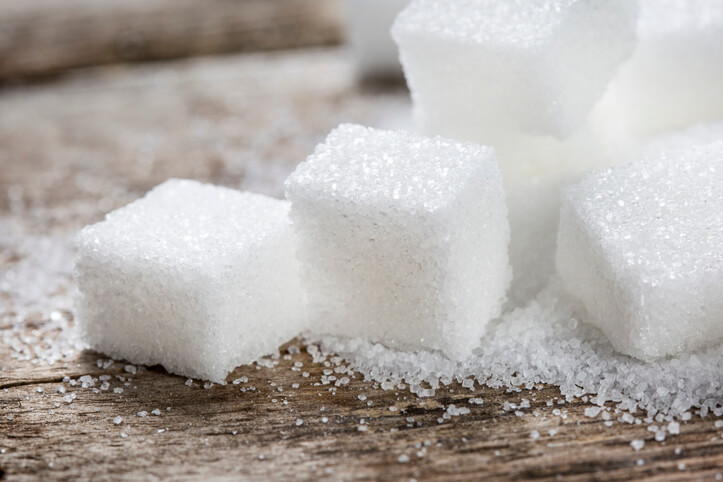
Why is sugar bad for your teeth?
Whenever the topic of which foods are good for your teeth is discussed, sugar always lands firmly on the side of being bad for your dental health. You might know that eating too much sugar is bad for your overall health, and you might have been told by your dentist that sugar can cause cavities – but do you know how sugar affects your teeth?
Keep reading to learn more.
Is sugar bad for your teeth?
It’s true that sugar is damaging to your teeth, but the situation isn’t that simple. Cutting out sugar entirely isn’t good for your health either – especially since we need sugar from sweet or starchy foods to give us energy.
Refined sugars – such as those found in sweets and sugary drinks – tend to break down in the mouth. Natural sugars – found in fruits or dairy products – break down in the stomach, so they don’t have as great an effect on the teeth. However, this doesn’t mean you can forget your oral hygiene routine, as all kinds of sugar have an effect on your teeth.[1]
How sugar affects your teeth
Your mouth is full of bacteria – some of which are good for your teeth and some of which aren’t. The harmful bacteria is bad for your teeth because when they consume sugar, they produce acid. Acid helps to break down your tooth enamel and leave your teeth vulnerable – this is called demineralisation. This acid hangs around for up to two hours, so it’s got time to do damage.
Fortunately, your saliva contains plenty of minerals, and so with the help of fluoride toothpastes, saliva helps your enamel to repair itself. If you don’t eat a lot of sugar, or you don’t eat it often, this can be enough to protect your teeth from sugar damage.
However, if you eat sugar frequently, the acids in your mouth might attack your enamel quicker than it can repair itself. This is particularly true if you eat sugar every two hours or more often – for example, in a cup of tea or coffee. Because the acid lasts about two hours, your teeth don’t get time to recover before you add more acid to the mix – and this can do real damage.[1]
How does sugar cause cavities?
If you continue on a path of eating sugar frequently, the damage will get worse. Over time, the acids might break through the enamel layer and into the inside of your tooth. This is known as a cavity. If left untreated, the cavity can get bigger and deeper, causing pain, discomfort and increasing your risk of infection.[2]
How to prevent sugar damaging teeth
One of the first options often thought of when it comes to preventing sugar damage is to limit sugar intake. This is a good idea, as reducing your sugar intake can help your general health as well as your dental health, but it’s important to go about it in the right way.
Cutting out sugar all together is not only difficult, but also can be detrimental to your health. We need sugar to survive, so it’s a better idea to limit your intake and be careful in terms of what kind of sugar you eat. It’s best to stick to natural sugars rather than refined sugars. If you do eat sugary snacks, eat them alongside a meal rather than in between, otherwise you risk prolonging the amount of time acid remains around your teeth.[3]
Here are some other options that will help to reduce the impact of sugar on your dental health:[4]
- Brush your teeth twice daily
- Use interdental brushes or floss picks to clean between your teeth
- Use a straw to limit the contact between sugary drinks and your teeth
- Rinse with water after meals and drinks
Resources:
[1] https://www.nhs.uk/live-well/eat-well/food-types/how-does-sugar-in-our-diet-affect-our-health/
[2] https://www.nhs.uk/conditions/tooth-decay/
[4] https://www.nhs.uk/live-well/healthy-teeth-and-gums/how-to-keep-your-teeth-clean/




